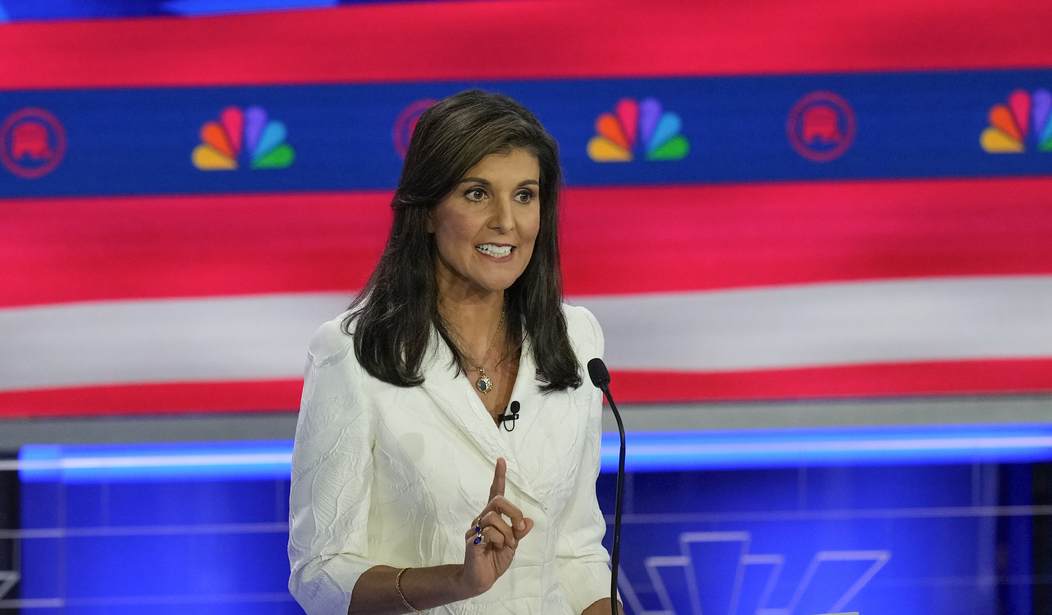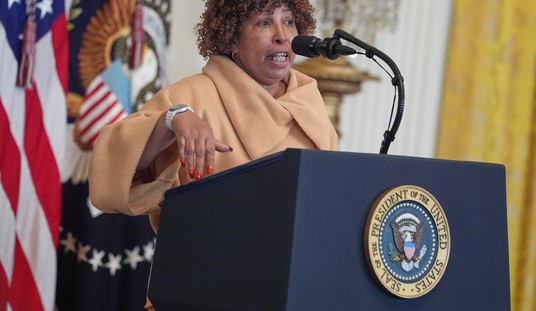Former U.N. Ambassador and current presidential candidate Nikki Haley raised more than a few eyebrows on Tuesday when she advocated for using the government to force people to expose their identities to use social media. But, as it turns out, she is not the only high-profile Republican to make such a suggestion.
For those unfamiliar with the story, during an appearance on Fox News, Haley blamed the rise of antisemitic speech on young people using digital platforms and said that if she becomes president, she will force social media companies to disclose their algorithms and prohibit people from posting under anonymous accounts. She said that “every person on social media should be verified by their name” because of threats to “national security.”
Nikki Haley says if she becomes president, she will do away with anonymous accounts on social media.
— Jeff Charles, An Awful Pundit🏴 (@jeffcharlesjr) November 14, 2023
"Every person on social media should be verified by their name."#NikkiHaley pic.twitter.com/j3RuW4W8vY
Back in 2021, Sens. Ron Johnson (R-WI) and John Kennedy (R-LA) endorsed the idea when columnist Andy Kessler published a piece for the Wall Street Journal in which he argued in favor of the state ending online anonymity. He asserted that imposing such a policy would make it easier to hold users accountable for the statements they make on social media platforms – especially when it concerns defamatory remarks.
In many ways, that’s the solution—end anonymity. On Wall Street it’s called “Know your customer”: Citigroup CEO Michael Corbat talks about the bank’s KYC rule all the time. Goldman Sachs forgot about KYC when it did deals with the swindlers at 1MDB. Know your customer is mandated to stop money laundering. Maybe it can work for rhetoric laundering and put an end to Gabe’s theory.
Sure, there’s value to spontaneous users speaking freely about everything, but no one really knows how many fake accounts spewing fake news exist. Truth is elusive. So why not impose know-your-customer on social-media companies. Facebook and Twitter don’t want to know their customers simply because it would be expensive. Too bad. Yes, it would be hard and their user counts would drop, maybe halve, but advertisers would rejoice. It might be cheaper than today’s band-aid of hiring tens of thousands of content moderators.
How to do it? Require a credit card, like Apple does to use its app store? Maybe. A driver’s license? Passport? A trip to the post office or DMV (yikes!) to be identified? Require showing your voter ID? Oh that’s right, there is no voter ID. Any way you choose, identify posters.
Let’s face it, Twitter can be a cesspool of snark. Of course, that’s what attracts many of us. Will that change? Maybe. But I like a world in which someone can be sued when he posts threatening language. If someone libels you, you can sue him. Post about buying zip ties and invading the Capitol, and the FBI knocks on your door. This would put an immediate damper on today’s worst offenders.
Sen. Johnson wrote a post on X, formerly Twitter, about the article and indicated that “One solution may be to end user anonymity on social media platforms.”
I'm concerned that Congress’s involvement in Section 230 reform may lead to more harm than good.
— Senator Ron Johnson (@SenRonJohnson) January 27, 2021
One solution may be to end user anonymity on social media platforms. Social media companies need to know who their customers are so bad actors can be held accountable. https://t.co/9FCmG4OopU
Journalist Karl Herchenroeder posted a report indicating that Sen. Kennedy planned to introduce legislation to prohibit anonymity, claiming that it would “cause a lot of people” to “think about their words.”
From @Comm_Daily: Sen. Kennedy is planning to introduce legislation that could require social media users to verify their legal identities when interacting on platforms.
— Karl Herchenroeder (@KarlHerk) January 29, 2021
Requiring legal identities would “cause a lot of people” to “think about their words,” Kennedy said Thursday. He’s confident the proposal would be constitutional and could gain Democratic support. Many newspapers require users to identify themselves in comment sections, he said.
— Karl Herchenroeder (@KarlHerk) January 29, 2021
The notion that the state should possess the power to compel people to disclose their identities just to use these sites is highly problematic, if not outright authoritarian.
For starters, let’s take cancel culture into account. Haley, along with many others on the right, is probably aware of the political climate in which we live. In an age where expressing political beliefs that contradict progressivism can lead to severe personal and professional consequences. Forcing people to be public with their identities will undoubtedly amplify these risks. We have already seen numerous instances in which people have been harassed or lost jobs because of their online speech.
If people are compelled to reveal their identities, it would also stifle speech. When their full names are out there for the public to see, they will likely not voice opinions that go against the grain out of fear of being canceled or otherwise targeted. This does not foster an environment in which the free expression of ideas can take place.
There are also the risks to whistleblowers that must be considered. The anonymity provided by social media can be instrumental in exposing government corruption and malfeasance. However, if users have to make their identities public, they might not be willing to come forward out of fear of retaliation, which would only make it easier for the state to continue its corruption.
In the end, the government should never have the power to keep people from concealing their identities. But in this current political environment, the issue is even more pressing. Those advocating for these types of measures should rethink their positions.













Join the conversation as a VIP Member